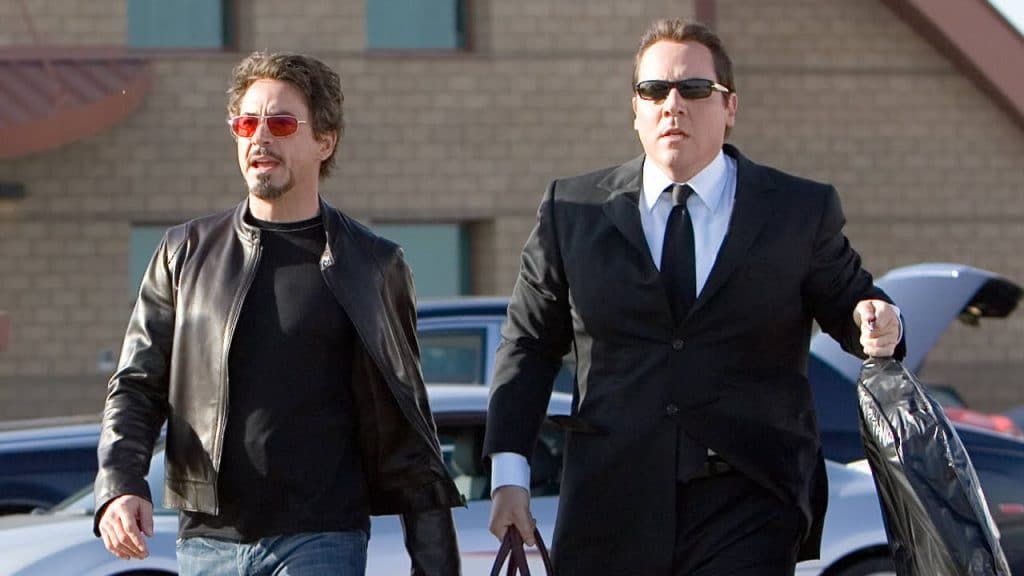Jon Favreau Got into an Annoying Argument Over One Seemingly Harmless Dialogue in Robert Downey Jr’s First Marvel Movie
Nearly 15 years ago, under the direction of Jon Favreau, our beloved Iron Man made his cinematic debut, and since then, Robert Downey Jr.’s portrayal of this iconic character has firmly established itself as one of Marvel’s most successful and cherished figures. Yet, amidst the remarkable success of Marvel Studios, there is an intriguing facet to their filmmaking process. On several occasions, Marvel has collaborated with the United States Military to ensure a level of authenticity and cooperation in their movies.

However, even in this fruitful collaboration, there have been moments of contention. Notably, during the production of the first Iron Man film directed by Jon Favreau, a single line in the script caused a significant stir within the Pentagon. This line, which concerned the military’s portrayal, was viewed as potentially encouraging censorship and fostering a negative image of the armed forces.
Jon Favreau’s Near Fallout with the Pentagon for Robert Downey Jr’s Iron Man

Iron Man‘s release was a cinematic milestone, both critically and financially, and ignited the MCU’s record-breaking success. Jon Favreau‘s direction in the inaugural MCU movie was a key factor in this achievement. However, the early days of the MCU had their share of challenges, particularly during the production of Iron Man. A pivotal script element strained the relationship between Jon Favreau and the Pentagon, which aimed to maintain a positive and accurate military portrayal in the film. Pentagon’s Entertainment Media official Phil Strub said (via USO),
Also Read: The Marvel Star Who Gave Chris Evans a “Hard Time” for Dethroning Him as S*xiest Man Alive
“It never got resolved until we were in the middle of filming. “Now we’re on the flight lines at Edwards Air Force Base (California), and there’s 200 people, and [the director] and I are having an argument about this. He’s getting redder and redder in the face and I’m getting just as annoyed.”
The line in question, which almost led to a major falling out between Jon Favreau and the Pentagon, had the potential to damage the image of the military. In this delicate situation, the Pentagon was not merely a passive observer. They had final script approval, which gave them the authority to shape how the military was depicted in the film. Their interest lay in showcasing the armed forces in a flattering and responsible manner while upholding the chain of command and hierarchy as a reflection of the real-world military structure.
The US Military’s Complex Relationship with Marvel Studios

The disputed line centered on a soldier’s willingness to sacrifice his life for Tony Stark’s opulent lifestyle, leading to a heated clash between Philip Strub, the Department of Defense’s entertainment official, and Jon Favreau. Despite weeks of creative dialogue with Robert Downey Jr, Favreau initially misunderstood the seriousness of the matter, seeing it as a common idiom rather than a slight against the military.
Strub’s dedication to responsible military portrayal prevailed as he eventually approved the line with minor modifications, surprising Favreau, who had anticipated a more prolonged negotiation. Strub said USO,
“I think that’s more the way these things go once the filmmakers understand that we’re not out to undermine their art, but to try to come up with something that works for them. Oftentimes … it’s something they haven’t thought of and they like it [and] it makes it better. And that happens all the time.”
Neither version of the disputed line made it into the final film. This tension between the Department of Defense and the Marvel Cinematic Universe was not unique, with other disagreements, like the DOD’s initial refusal to cooperate on The Avengers due to concerns about SHIELD’s nuclear strike decision in New York City. These incidents underscore the challenge of reconciling creative storytelling with military collaboration in cinema.
Also Read: Robert Downey Jr’s Weird Demand in Avengers: Endgame May Have Left Many of His Co-stars Miserable





